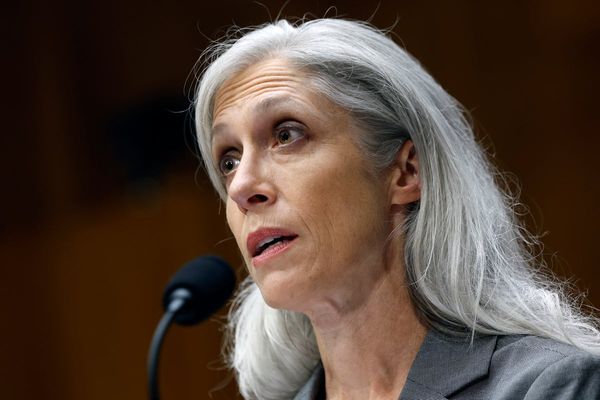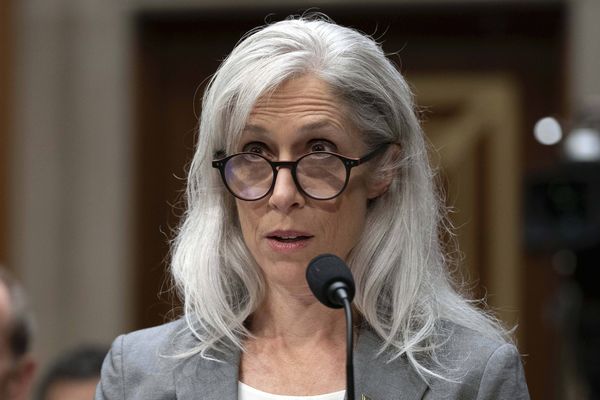
Yulia Navalnaya, the widow of the Russian opposition leader Alexei Navalny, said that two foreign laboratories had confirmed her husband was poisoned, after tests on biological samples secretly smuggled out of Russia.
Navalny, 47, died suddenly on 16 February 2024, while being held in a jail about 40 miles (64km) north of the Arctic Circle, where he had been sentenced to decades in prison to be served in a “special regime”.
Navalny’s allies have accused the Kremlin repeatedly of killing him – allegations Moscow has dismissed as absurd. Russian officials insist he died of a mixture of diseases, including heart arrhythmia triggered by hypertension.
Kremlin spokesperson Dmitry Peskov said on Wednesday he was unaware of Navalnaya’s claims.
Navalnaya, who lives abroad, posted a video on X in which she said biological material from Navalny was smuggled abroad in 2024 and then examined by two laboratories.
“These labs in two different countries reached the same conclusion: Alexei was killed. More specifically, he was poisoned,” Navalnaya said, urging the two laboratories to release the findings.
“These results are of public importance and must be published. We all deserve to know the truth,” she said.
Navalnaya also said the surveillance footage from the final day of her husband’s life had vanished, despite the opposition leader being under near-constant camera monitoring throughout his imprisonment.
She did not specify what poison the laboratories had found.
Navalny’s allies also released previously unseen photographs they said were taken inside the prison cell after his death. The images show a cramped cell with what appears to be vomit and blood on the floor, next to a notebook and an Oxford dictionary.
Leonid Volkov, a close ally of Navalny, wrote on X that the opposition leader had been “murdered in an agonising way, with poison”.
He added: “No matter how much they tried to erase details from the medical records or cover their tracks, we know everything about his final day and the method of his killing.”
The regional penitentiary service said in a statement at the time of his death that Navalny “felt unwell after a walk and almost immediately lost consciousness”.
Last year, the investigative outlet the Insider also raised the possibility that Navalny had been poisoned, citing medical records that appeared to have been altered to support the state’s claim that he died of cardiac problems.
The Insider published what it said was the original report, which stated that on 16 February Navalny “complained of severe abdominal pain, began vomiting, suffered convulsions and lost consciousness” – details, the Insider said, that suggested possible poisoning.
A second version of the report, which appeared to have been edited, omitted those symptoms.
The Kremlin has a long history of using poison as a weapon against its enemies. The death of Alexander Litvinenko in London from radioactive polonium in 2006, the nerve agent attack on former spy Sergei Skripal in Salisbury in 2018, and a previous poisoning attempt on Navalny have cemented Russia’s reputation for resorting to toxins to silence critics and defectors.
In 2020, Navalny fell into a coma after a suspected poisoning using novichok by Russia’s FSB security service and was evacuated to Germany for treatment.
He recovered and returned to Russia in January 2021, where he was arrested on a parole violation charge and received the first of several jail sentences that would have amounted to more than 30 years behind bars.







